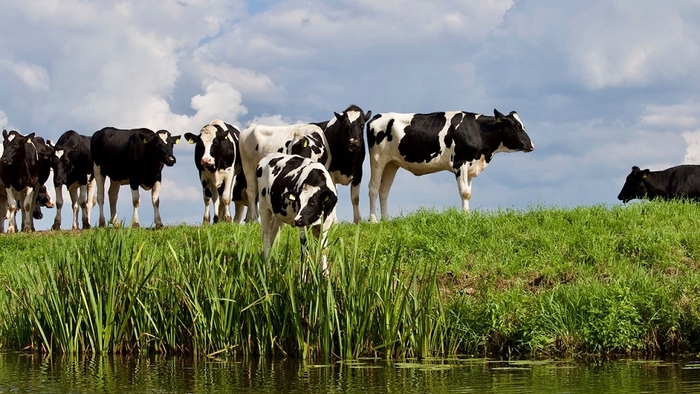The results of an ambitious five-year study of dairy cattle will now enable farmers to improve animal welfare while reducing environmental impact. The research was carried out by a consortium of 16 partners in industry and academia from six EU countries, the USA and China, with the Royal Veterinary College (RVC) playing an integral role.
The project, Genotype plus Environment (GplusE), investigated the impacts of different genetic selection and management tools on dairy cows. In particular, RVC researchers explored the underlying genetic factors which predispose cows to diseases such as mastitis and infertility. The project has also developed novel tools such as biomarkers in milk to help indicate production efficiency, health, fertility and the environmental footprint of cows. Notably, MIR spectra in milk are now being used to predict metabolic imbalance and evaluate genetics for robustness.
The result of this research is an improvement in our ability to monitor dairy cattle and select individuals for future breeding. This will allow dairy farmers to cultivate herds with more resilient and productive animals and minimise their environmental footprint.
These developments are already being put to practical use at GplusE training schools. Researchers are teaching scientists and farmers how to apply the knowledge to future research or to improve their selection and management of dairy cows. The presentations given at these schools, as well as all publications from the project, are available on its website at http://www.gpluse.eu.
Commenting on the outcome of GplusE, Professor Claire Wathes, Professor of Veterinary Reproduction at the RVC, said: “It has been a really productive five years. Bovine genomics is advancing very rapidly at the present time. The assembled team of international scientists brought together many different skill sets and we have been able to work together to make significant advances in our understanding of how to improve the health and management of modern dairy cattle through better monitoring and selection policies.
“This approach has the added benefits of improving animal welfare and helping to reduce the environmental footprint of future dairy farms.”


